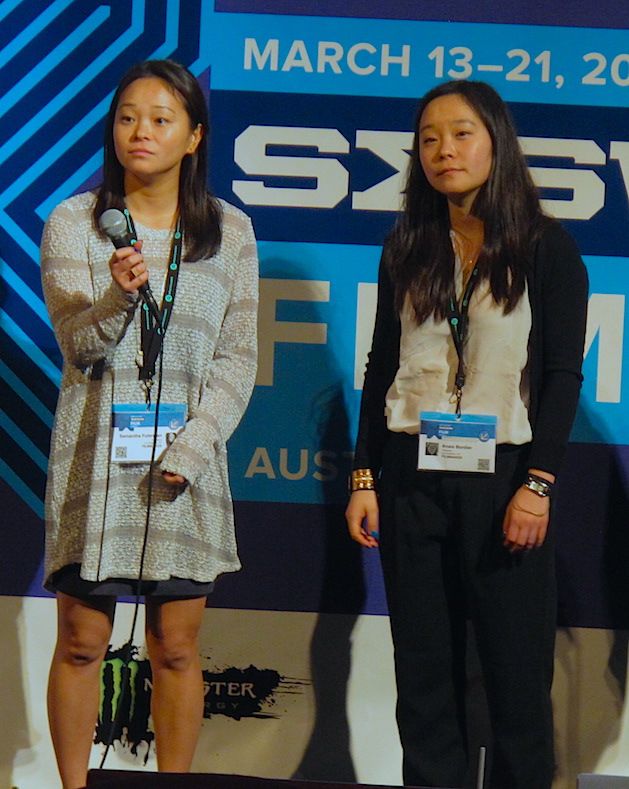Twinsters is the rather incredible story of two Korean-born twin sisters, adopted by different families and raised on different continents, finding each other 25 years after their birth. After watching a YouTube video in which one of them is performing, a friend shares the link on Facebook and passes it along, pointing out the incredible physical ressemblance of the two.
Facebook happens and as the discussion unfolds, both women realize they are born on the same day in the same hospital. One (Sam) was adopted by an American family and eventually moved to Hollywood to be an actress. The other (Anais) is an aspiring London-based fashion designer raised in France. Neither of their birth certificates make mention of a sibling. Neither of their adoptive families has been told about this, nor had their Korean foster parents.

This is a story of discovery, an incredibly emotional one – I could have sworn someone was cutting onions in front of my very seat for the first 25 minutes of the movie. Both of them, both of their families and all of their close friends suddenly having to find a way to connect with strangers. Having to travel around the world to see each other, in London first then in California, finding comfort in bringing people with them while also seeking to spend time alone to connect with each other.
As someone who was born and raised in France and who has been living in California for close to 8 years, I could sense how beyond their obvious personal connections as sisters, the two were reacting differently to the situation because of their education and background. At some point in the movie, Anais is confronted to a proposition to go to Korea and not only investigate how the twins were separated at birth but also just to meet her foster mother for the first time – something Sam had done the year before.
Possibly because of her personality and of her only-child background, Anais seemed to be wanting to fit in and go about her life without spending time or energy trying to find out where she was born – it’s a perfectly valid accepting stance, and I could sort of tell it also relates, culturally, to her being raised in France. We’re taught to be discreet, to not cause a fuss and to control our emotions. On the other hand, Sam is a lot more proactive, but also looks to be more vulnerable and emotional – she hides less of herself and looks to be more welcoming of her feelings, which is something I think is true of a lot of people raised in America.
In any case, this story (I wouldn’t call it a documentary per-se) is incredibly powerful and well worth watching.